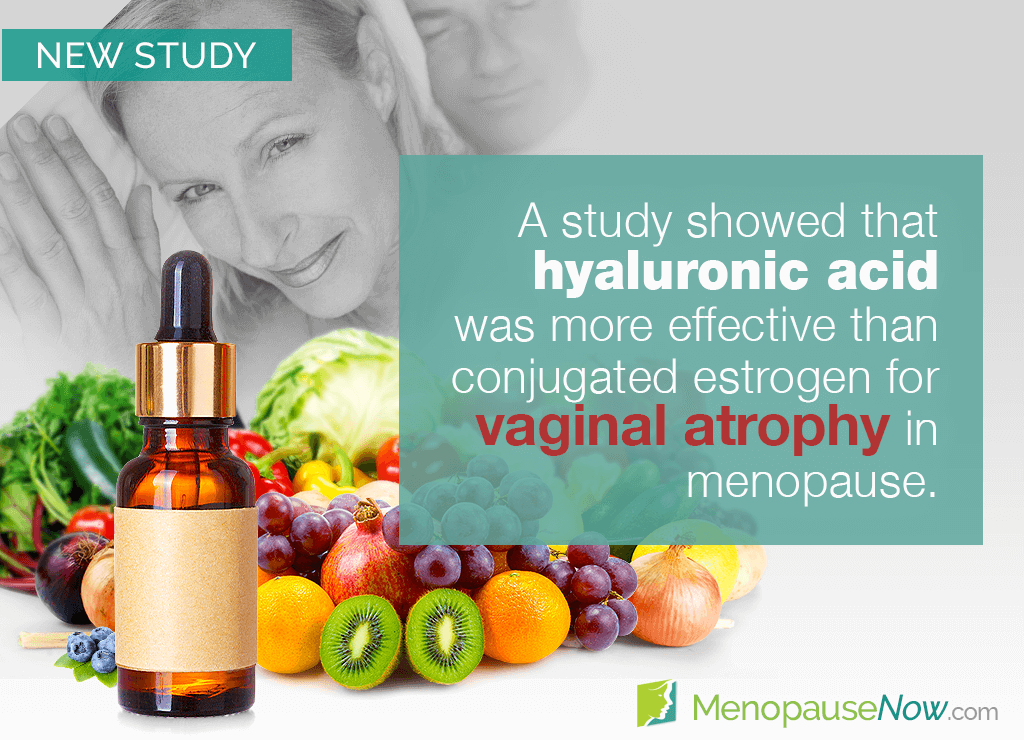Affecting as much as 40% of menopausal women, vaginal atrophy can have significant repercussions on their health as well as their self-esteem and quality of life.1
In efforts to find natural solutions to the problem, researchers set up this clinical trial, in which they compared the effects of hyaluronic acid (known for its role in maintaining proper hydration in the body) with those of commonly prescribed conjugated estrogen cream.
Study Design
There were 56 menopausal women recruited for this trial, all with moderate to severe symptoms of vaginal atrophy. The severity of their complaints was measured using visual analog signals (VAS) before the trial.
Then, to compare the effects of both regimens, researchers divided the participants into two groups:
- Group A used a 0.625 mg conjugated estrogen vaginal cream every night at bedtime for two weeks, followed by twice a week for six weeks.
- Group B used hyaluronic acid vaginal cram containing 5 mg of sodium salt every day at bedtime for eight weeks.
After eight weeks of treatment, women's symptoms and other measurements (such as vaginal pH and cellular maturation) were evaluated.
Study Findings
Both groups showed significant improvements in the severity of their vaginal atrophy symptoms as well as a reduction of vaginal pH. However, urinary incontinence improved only in the hyaluronic acid group.
Moreover, comparisons between the two groups showed a higher effectiveness of hyaluronic acid than conjugated estrogen on urinary incontinence, vaginal dryness, painful sex, itching, and cellular maturation.
What Does It Mean?
The results of this study demonstrate that hyaluronic acid not only relieved symptoms of vaginal atrophy, but it was also more effective than the standardly prescribed conjugated estrogen.
These findings bring hope for an effective, non-hormonal treatment for menopausal women with vaginal atrophy who do not want to or cannot take hormones for their symptoms. Researchers call for more studies to further explore the use of hyaluronic acid for vaginal atrophy.
Sources
- International Journal of Community Based Nursing Midwifery. (2016). Comparison of the Hyaluronic Acid Vaginal Cream and Conjugated Estrogen Used in Treatment of Vaginal Atrophy of Menopause Women: A Randomized Controlled Clinical Trial. Retrieved December 09, 2020 from https://www.ncbi.nlm.nih.gov/pmc/articles/PMC4709811/
Footnotes:
- Menopause. (2007). The role of local vaginal estrogen for treatment of vaginal atrophy in postmenopausal women: 2007 position statement of The North American Menopause Society. Retrieved December 09, 2020 from https://www.ncbi.nlm.nih.gov/pubmed/17438512/

